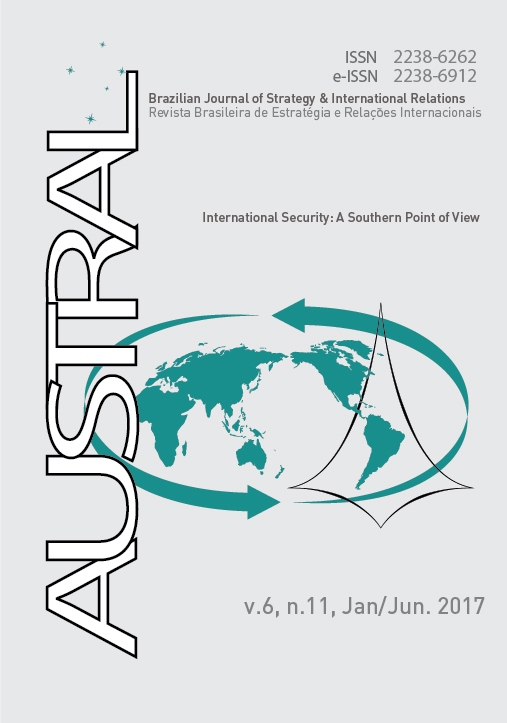STRUCTURE AND AGENCY IN INTERNATIONAL RELATIONS: STATE-BUILDING AND THE EVOLUTION OF THE INTERNATIONAL POLITICAL SYSTEM
DOI:
https://doi.org/10.22456/2238-6912.74960Keywords:
International systems, State building, Structure.Abstract
Conflicts are intrinsic to social systems and constitute an irreducible part of their development. This article analyzes the conflict between states and its effects on the evolutionary dynamics of the international political system. We discuss the ontology of each object of analysis and the causal mechanisms that connect their respective evolving trajectories. Then, the analytical model is evaluated regarding to the processes of formation of the Qin Empire in China and the construction of Nation-States in Europe. The working hypothesis is that the interactions among the strategies chosen by the agents to cope with the structural constrains and competition conditions they encounter cause changes in the international political systems, as well as on the actors themselves.


